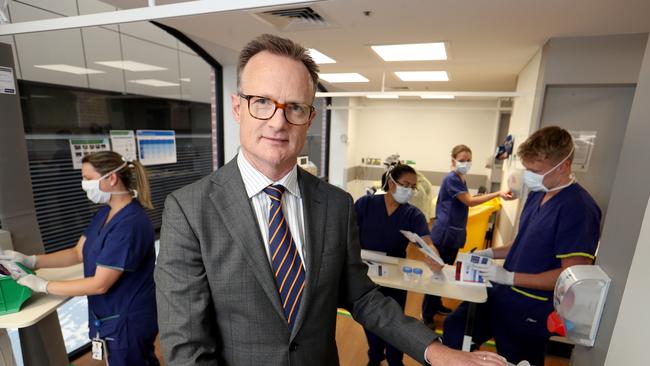Bupa strikes funding agreement with Epworth as stalemate with Ramsay endures
Health insurer Bupa has renewed funding agreements with three hospital groups in three months, despite a new contract with Ramsay remaining elusive.

British health insurance giant Bupa has extended its hospital funding agreement with Epworth HealthCare – its third in as many months – despite failing to break its stalemate with Australia’s biggest private hospital provider, Ramsay.
Bupa and Ramsay have been unable to reach a new funding deal, with their existing agreement set to expire on August 2. If the dispute is not resolved by then, Bupa members have been warned they will face out-of-pocket costs if they are treated at a Ramsay hospital.
It’s understood that Bupa has offered a funding increase of around 1.5 per cent, while Ramsay is looking for a figure closer to matching hospital costs, which have risen about 7 per cent.
Despite failing to strike a fresh agreement, Bupa has successfully extended its contracts with Ramsay’s smaller rivals – Melbourne-based Cabrini, Mater Health and now Epworth, which is Victoria’s largest not-for-profit hospital group with sizeable operations in Melbourne’s inner east and Geelong.
Those agreements have involved funding more out-of-hospital services, expanding rehabilitation in patients’ homes beyond traditional areas such as orthopaedics to neurological and reconditioning.
Epworth Group chief executive Lachlan Henderson said the renewed partnership with Bupa allowed for greater choice while maintaining access to high quality care.
“Innovative programs such as rehab in the home are already providing great clinical and personal outcomes for patients, with these services now available to more Bupa patients,” Dr Henderson said.
“Our rehab in the home service doubled as people became accustomed to working and schooling from home during the pandemic, and we’re seeing demand continue. We know our patients love the flexibility of receiving therapy at home as it fits in with their lifestyles.”
It comes as hundreds of millions of dollars have been wiped off private hospital earnings, with the pandemic-enforced elective surgery restrictions costing Ramsay $196.2m, including $89.2m in the three months to March 31, alone.
Meanwhile, net profit across Australia’s entire private health insurance sector soared from $952m to $2bn in the year to March 31, according to Australian Prudential Regulation Authority data.
But Australia’s five biggest health funds – including Bupa and rival Medibank – have returned $1.6bn to their customers via cash refunds, financial hardship packages and deferring premium increases as part of their commitment not to profit from Covid-19, with the Australian Competition and Commission watching closely.

Bupa Health Insurance managing director Chris Carroll said the Epworth agreement “reflected the new era in patient care, with a major hospital group and private health insurer working together to ensure improved patient outcomes, experience and affordability”.
“This is another great example of hospitals and insurers working collaboratively to put patients first, providing greater choice around their care while helping free up hospital beds for those who really need it,” he said.
“Hospitals are, and always will be, the backbone for acute and complex care, but the reality is for many patients healthcare can be delivered in community settings and, increasingly, in the home.
“Getting the same clinical care at home will give patients the peace of mind they are receiving the high standard of care that Epworth is renowned for, just in the comfort of their own home.”
Bupa Asia Pacific chief executive Hisham El-Ansary said earlier this year that its strategy was aimed at ensuring patients had the right treatment for their needs and adding more flexibility to Australia’s health system, with savings was costly hospital stays crucial to helping keep premium increases low.
“When a person needs a knee replacement, the traditional cost is about $30,000. How’s that broken up? Well, the patient goes into hospital, the surgeon’s fees, the doctors fees are typically about $10,000. The prosthetic knee is about $10,000 and then the hospital stay is $10,000,” Mr El-Ansary said in March.
“They stay in hospital for a week after the surgery. The next day, assuming there’s no infection and no complications … the physiotherapist comes in for 10 minutes in the morning and walks ‘Mrs Jones’ down the corridor and back. And if she’s lucky that physio will come back in the afternoon and do the same thing. That will be about $1900 a night … is that a good use of the system?”
Ramsay has also recognised the value in providing more out-of-hospital care. The Australian revealed last week that the $16bn ASX-listed hospital group had opened 11 community psychology clinics across Australia, with plans to establish 20 more in the next two years.
The 200 psychologists running Ramsay’s Australian clinics have completed about 10,000 consultations in the past year.




To join the conversation, please log in. Don't have an account? Register
Join the conversation, you are commenting as Logout